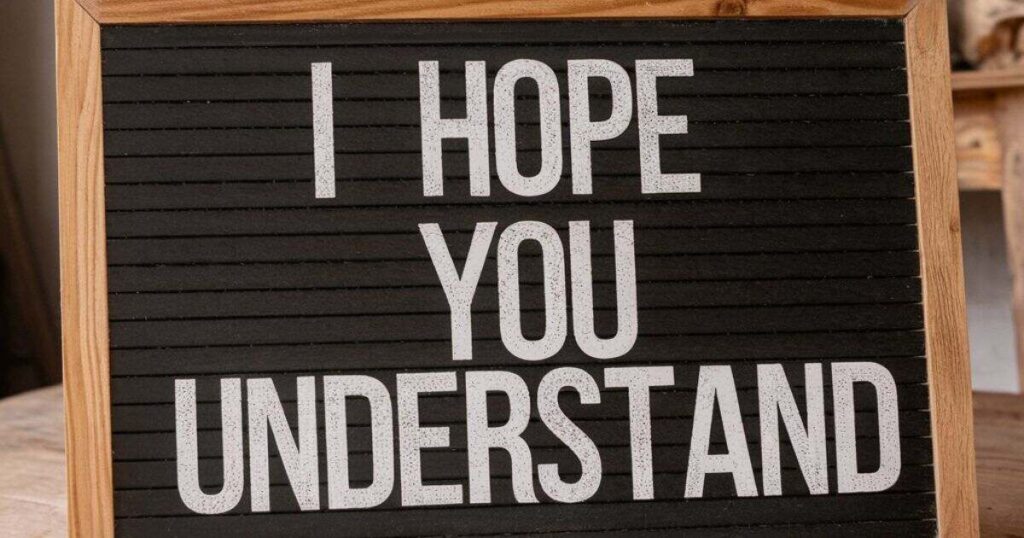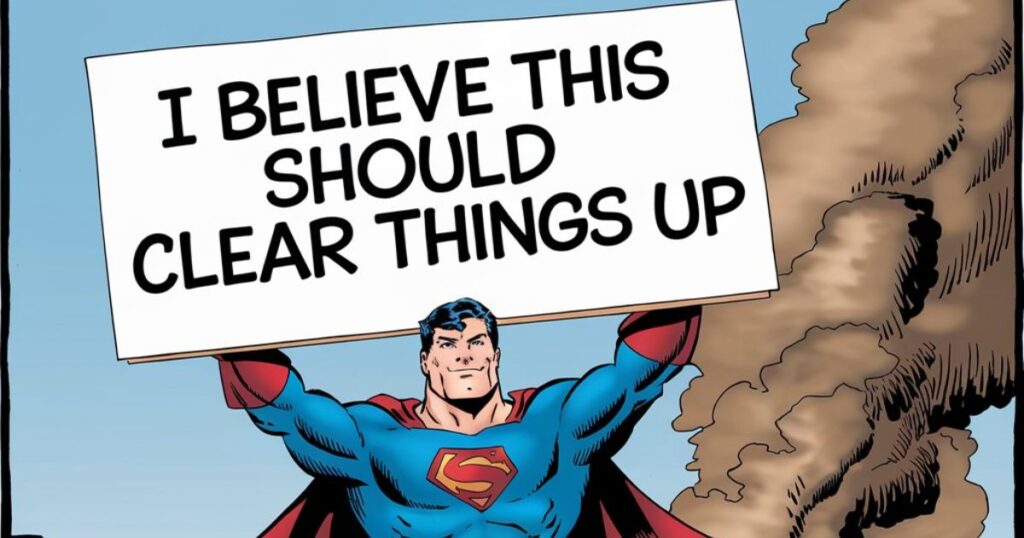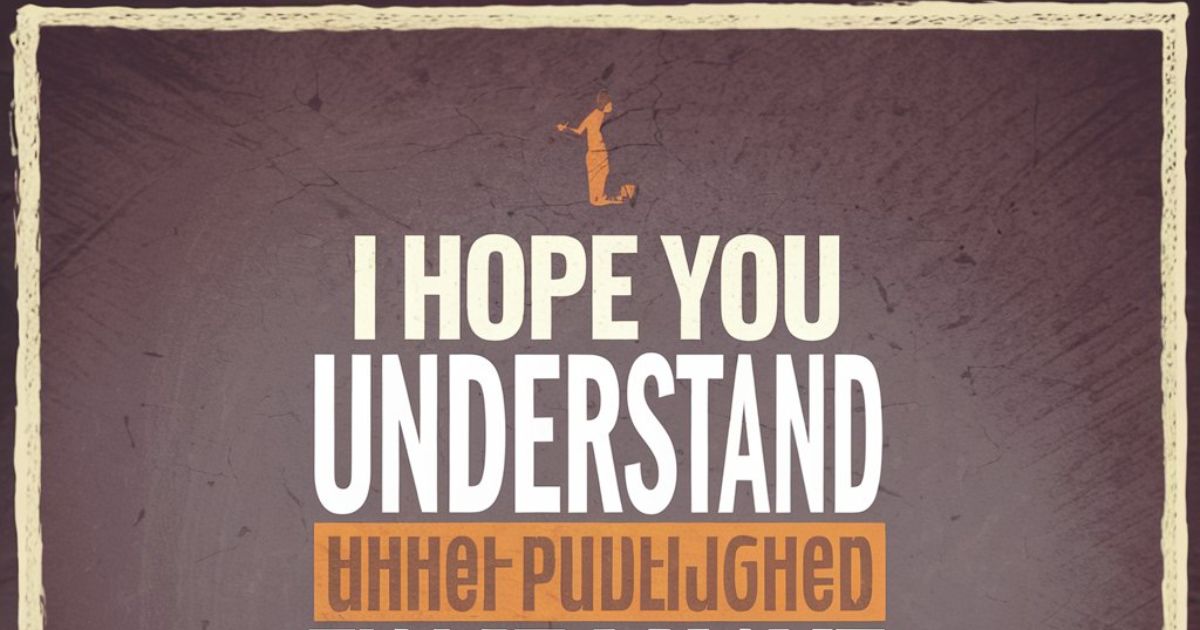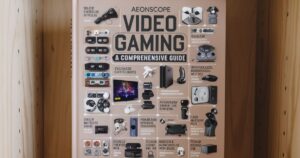Ever found yourself stuck in a conversational cul-de-sac, endlessly repeating “I hope you understand” like a broken record? We’ve all been there. In the grand tapestry of human interaction, our words are the threads that weave connections. But when those threads start to fray from overuse, it’s time to reach for some fresh linguistic fabric.
Let’s face it: communication is the lifeblood of our personal and professional lives. Whether you’re explaining a complex project to your boss, smoothing over a misunderstanding with a friend, or trying to get your point across in a heated debate, how you express yourself can make or break the outcome. That’s why we’re diving deep into 20 alternative ways to say “I hope you understand” – because variety isn’t just the spice of life, it’s the secret sauce of effective communication. 20 Other Ways to Say “I Hope You Understand”.
Synonyms for “I Hope You Understand”: Expanding Your Linguistic Toolkit

Ready to give your vocabulary a turbo boost? Let’s explore these 20 alternatives that’ll have you communicating like a pro in no time.
1. I Believe this Clarifies Things
When you want to exude confidence in your explanation, this phrase is your go-to. It’s like putting a neatly tied bow on the package of information you’ve just delivered.
Example: After walking her team through the new project timeline, Sarah concluded with, “I believe this clarifies things regarding our deadlines and milestones.”
2. I Hope this Makes Sense to You
This gentle alternative shows you’re considerate of the other person’s perspective. It’s like offering a helping hand to guide them through your thought process.
Pro tip: Use this when explaining something step-by-step, especially in teaching or training scenarios.
3. I Expect You to See My Perspective
Feeling bold? This phrase carries a touch of assertiveness while still respecting the other person’s viewpoint. It’s perfect for situations where you need to stand your ground without burning bridges. 20 Other Ways to Say “I Hope You Understand”.
Case study: During a salary negotiation, Alex confidently stated, “Given my track record and the industry standards I’ve outlined, I expect you to see my perspective on why this raise is justified.”
4. I Hope this Explanation is Helpful
By focusing on the helpfulness of your explanation rather than the understanding itself, you’re emphasizing your effort to assist. It’s like saying, “I’ve done my best to help you out here.”
When to use it: This works wonders in customer service scenarios or when providing technical support.
5. I Trust You Appreciate My Position
Want to build rapport while making your point? This phrase does double duty by expressing your viewpoint and assuming goodwill from the listener. It’s a verbal olive branch.
Business negotiation example: “After reviewing our proposal and the market conditions, I trust you appreciate my position on the pricing structure.”
6. I Hope You Can Follow My Reasoning
When logic is your strong suit, this phrase helps you showcase it. It’s like laying out a trail of breadcrumbs for your listener to follow your thought process. 20 Other Ways to Say “I Hope You Understand”.
Academic use: Perfect for presenting research findings or complex theories.
7. I Hope this Addresses Your Concerns
Customer service gold, right here. This phrase shows you’ve been listening and are genuinely trying to help. It’s the verbal equivalent of a reassuring pat on the shoulder.
Example: After explaining a product’s features, a sales rep might say, “I hope this addresses your concerns about durability and ease of use.”
8. I Believe this Is Comprehensible
Feeling formal? This alternative brings a touch of sophistication to your communication. It’s like donning a verbal tuxedo – use it when the occasion calls for it.
Tip: Great for academic papers or official communications.
9. I Hope This Gives You Insight
When you’re not just explaining, but illuminating, this phrase shines. It suggests you’re offering a new perspective or deeper understanding.
Mentoring scenario: “As we’ve discussed your career goals and the industry trends, I hope this gives you insight into potential paths forward.”
10. I Expect this Resolves Any Confusion
Confidence is key, and this phrase exudes it. It’s like saying, “I’ve nailed this explanation, and we’re all on the same page now, right?”
When to use: After clarifying a misunderstanding or answering a series of questions.
11. I Hope this Sheds Light on the Issue
Metaphors make language more engaging, and this one’s a classic. It paints a picture of illumination, perfect for when you’re tackling complex topics.
Example: “After breaking down the quarterly figures, I hope this sheds light on the reasons behind our strategic shift.”
12. I Believe this Should Clear Things Up

Informal yet professional, this phrase strikes a balance between confidence and approachability. It’s like giving a friendly nod after making your point.
Team communication: Great for follow-up emails or clarifying messages in group chats.
13. I Hope this Is Understandable
Sometimes, simplicity is key. This straightforward alternative gets the job done without any frills. It’s the communication equivalent of a firm handshake. 20 Other Ways to Say “I Hope You Understand”.
When to use: In written communications, where tone can be tricky to convey.
14. I Trust You See My Point
Building agreement? This phrase assumes positive intent and understanding from your listener. It’s a subtle way of saying, “We’re on the same page, aren’t we?”
Debate scenario: “After presenting these facts, I trust you see my point about the importance of renewable energy.”
15. I Hope this Clarifies Things
Similar to #1, but with a slightly different nuance. This one focuses on the act of clarifying, emphasizing your effort to make things clear.
Written communication example: “I’ve attached a detailed breakdown of the project phases. I hope this clarifies things for all team members.”
16. I Hope You Get The Picture
Looking to inject some casual flair? This idiom does the trick. Just be sure the setting is appropriate for such informality.
Casual workplace example: After explaining a new office policy, a manager might say, “So, no more casual Fridays during client visits. I hope you get the picture.”
17. I Hope You See Where I’m Coming From
Empathy is the name of the game with this phrase. It invites the listener to step into your shoes and view the situation from your perspective.
Personal relationship use: “I know we disagree on how to handle this, but after explaining my concerns, I hope you see where I’m coming From.”
18. I Hope this is Not Too Confusing
Acknowledging complexity can make your explanation more accessible. It’s like saying, “I know this is tricky, but I’m here to help you through it.”
Tip: Follow this up with an offer to clarify further if needed.
19. I Hope You’ll See Things My Way
When persuasion is your goal, this phrase can be a powerful tool. It’s assertive yet open, inviting agreement without demanding it.
Sales context: “After highlighting all the benefits of our premium package, I hope you’ll see things my way regarding its value for your business.”
20. I Hope this is Not Too Complicated
Similar to #18, but with a subtle difference. This one works well when you’re explaining something you know is complex but want to make it as accessible as possible.
Technical explanation scenario: “I’ve tried to break down the coding process into simple steps. I hope this is not too complicated for those new to programming.”
Conclusion: Elevating Your Communication Game
As we wrap up our linguistic journey, remember that effective communication is about more than just getting your point across – it’s about connecting, understanding, and being understood. By expanding your repertoire beyond the standard “I hope you understand,” you’re not just varying your language; you’re opening up new pathways for clearer, more engaging conversations.
FAQs
What is a better way to say, hope you understand?
Looking to level up from “I hope you understand”? Try these top three alternatives:
- “I trust this clarifies things for you.”
- “I hope this explanation sheds light on the matter.”
- “I believe this addresses any confusion you might have had.”
Remember, the best choice depends on your context and relationship with the listener. In formal settings, lean towards more professional options, while casual situations allow for more relaxed alternatives.
What is another way to say, hoping for your understanding.
When you’re seeking understanding, try these on for size:
- Formal: “I kindly request your comprehension in this matter.”
- Informal: “I’m counting on you to see where I’m coming from.”
Choose based on your relationship with the listener and the gravity of the situation. A light-hearted chat with a friend? Go informal. A serious discussion with your boss? Stick to the formal lane.
What can I say instead of I understand?
Flip the script! When you’re the listener, here are some fresh ways to express understanding:
- “I see your point.”
- “That makes perfect sense to me.”
- “I’m totally with you on this.”
- “I can relate to that.”
Pro tip: Pair these with a summary of what you’ve heard to show you’re truly on the same wavelength.
How do I professionally say “I understand”?
In the workplace, professionalism is key. Try these polished alternatives:
- “I fully comprehend the situation.”
- “Your explanation is clear to me.”
- “I grasp the implications of what you’re saying.”
- “I appreciate your perspective on this matter.”











